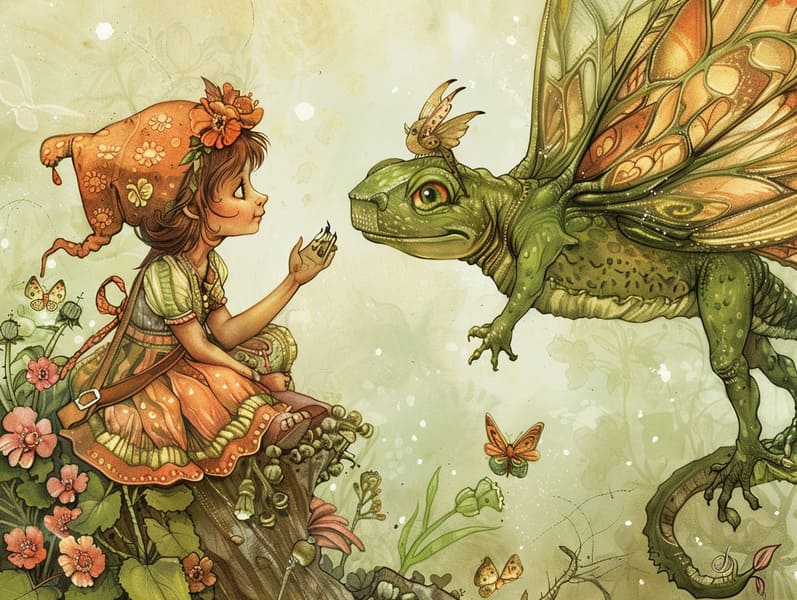Appreciating the Enchantment of Evening Adventures: Creating Prized Memories with Kids
Appreciating the Enchantment of Evening Adventures: Creating Prized Memories with Kids
Blog Article

Nighttime is a cherished time for families. It’s a occasion to wind down, cuddle up, and experience the magic of bedtime stories.
For years, children's bedtime stories have been a prized custom, offering more than just a way to fall asleep. They provide an prospect for closeness, knowledge acquisition, and fueling dreams.
The Power of Bedtime Stories
Sleep stories for kids are more than just a way to close the day. They play a important role in a child’s progress and in building the adult-child relationship. Here’s why they are significant:
1. Quality Time: Reading together at bedtime builds a special time of affection between moms and dads with their little ones. It’s a moment of togetherness that helps children feel cherished and safe.
2. Vocabulary Building: Listening to stories helps children develop their communication skills. They pick up new expressions, understand syntax, and enhance their auditory and grasping abilities.
3. Fantasy and Imagination: Bedtime tales transport them to enchanted worlds, encouraging fantasy. They visualize characters, settings, and adventures, which ignites their creative thinking.
4. Emotional Growth: Kids' tales often feature characters facing problems and sentiments. These accounts help kids grasp and navigate their own states, encouraging emotional maturity.
5. Cognitive Development: Following a story helps children develop focus, recall, and reasoning skills. They develop to follow stories, remember components, and anticipate results.
Making Bedtime Stories a Daily Practice
Building a nightly ritual that incorporates reading stories out loud is effortless and fulfilling. Here’s how to make it a treasured part of your bedtime ritual:
1. Pick a Cozy Area: Choose a quiet place where you and your child can get cozy without distractions. A cozy bed or a quiet reading nook works perfectly.
2. Set a Consistent Time: Choose a routine time each night for narratives. Consistency helps children anticipate and makes the habit easier to copyright.
3. Pick Stories for Their Age: Choose tales that match your child’s age. Small children might appreciate simple books with easy plots, while school-age kids may be interested in novels with more involved stories.
4. Engage with the Story: Turn the tale be captivating by using different voices and accents, adding noises, and inviting your child to take part. Ask queries about the story to keep them listening.
5. Make a Peaceful Setting: Adjust the lights, use gentle voices, and create a soothing environment to help your child settle down.
Finding the Best Bedtime Stories
There are countless choices where you can find wonderful bedtime stories for children. Here are some suggestions to look at:
1. Children’s Literature: Look at your community library or bookstore to find a diverse selection of bedtime stories for kids. Going through the choices together can be a wonderful activity that also enables children to pick stories that they are drawn to.
2. Internet Sources: There are many web resources that offer free bedtime stories. Sites like Storyberries provide a variety of short stories for kids that you can download. These sites are great for finding new and read more interesting stories without cost.
3. Apps and Audiobooks: For nights when you’re too tired to read, explore audiobooks or storytelling apps. These can provide a soft-spoken reading to read your child a story, ensuring they still get their bedtime story fix. Apps often offer interactive parts that can involve them further.
4. Personal Stories: Write your own stories fitting your child’s likes. Personalized stories can be very engaging and meaningful. You can include your child in the creation process, making them a part of the adventure.
Why Short Stories Work
Concise stories for kids are very helpful for bedtime. They provide all the benefits of longer stories but are more to the point, making them perfect for getting ready for bed before sleep. Here’s why short stories are a great choice:
1. Clear and Simple: Short stories are straightforward and simple for kids to grasp, even after a long day. They can quickly grasp the theme and enjoy the story without getting bored.
2. Instant Engagement: Concise stories swiftly engage children, keeping their engagement and creativity. This makes them ideal for keeping bedtime rituals efficient yet enjoyable.
3. Variety and Flexibility: Compact stories allow for variety in your bedtime narrative. You can select a different story each night, keeping the custom varied and exciting for your child.
4. Time Efficiency: For busy parents, short stories are a time-efficient way to ensure children still get their nightly dose of storytelling. They fit well into a crowded schedule while still offering the full benefits of a bedtime story.
"Read Me a Story": The Magic Phrase
The simple phrase, "Read me a story," can bring a world of magic for children. Answering to this request not only satisfies a child’s requirement for attention and engagement but also fosters lasting times. Here’s why it’s special:
1. Bond: Narrating to your child builds a deep emotional relationship. It’s a time for proximity, sharing, and bonding.
2. Practice: Starting a bedtime story habit creates a important tradition that children wait for every night. It’s a custom that can be shared through generations.
3. Shared Learning: As you narrate, you’ll watch your child’s progress and development. Their responses, reactions, and understanding of the stories evolve, offering insights into their developing minds.
4. Safe Environment: Bedtime stories provide a safe space for children to explore emotions, face fears, and find comfort in the trusted presence of a parent.
Summing It Up
Sleep stories for kids are a powerful tool for nurturing a child’s progress and forming unforgettable memories of closeness.